Here’s the thing about PUBG Mobile Patch 4.0 – it’s not the sensitivity overhaul some players feared. The update maintains core sensitivity mechanics while adding Harry Potter collaboration content, magic-themed gameplay elements, zombie mode updates, and the A15 Royale Pass.
No documented changes to sensitivity settings or aiming mechanics exist. This means your existing profiles should transfer directly without mathematical conversion headaches.
Understanding PUBG Mobile Sensitivity Changes in Patch 4.0
What Actually Changed in the Sensitivity System
Version 4.0 focuses on content rather than mechanical overhauls – and honestly? That’s a relief for competitive players. The three core sensitivity categories remain unchanged: Camera Sensitivity (Free Look), Camera Sensitivity (Scopes), and ADS Sensitivity. Gyroscope sensitivity maintains separate controls for device tilting adjustments.
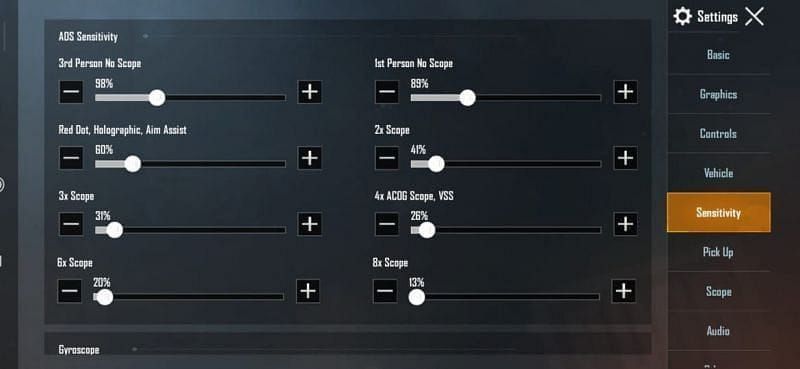
But here’s where it gets interesting. Potential performance variations from new content, updated graphics rendering, or engine optimizations could subtly affect input responsiveness. We’re talking about touch registration delays or frame rate fluctuations that might throw off your aim just enough to notice.
Impact on Muscle Memory
Muscle memory represents neurological adaptation to specific sensitivity values – it’s basically your brain’s autopilot for aiming. Even minor changes can disrupt this adaptation, requiring 7-14 days of focused practice to rebuild those neural pathways.
Improper migration? You’re looking at 15-25% accuracy reduction, increased reaction times, inconsistent recoil control, and reduced confidence in clutch situations. Nobody wants that.
For competitive advantage maintenance, secure adequate PUBG Mobile Top Up resources before the update to access new weapons and equipment for testing your migrated settings.
Pre-Migration Preparation: Backing Up Your 3.9 Settings
Recording Current Sensitivity Values
PUBG Mobile’s sensitivity code system is your best friend here. Navigate to Settings > Sensitivity > ‘Use Layout’ > ‘Share’ to generate a code. You’ll get something like 7307-1085-6780-4282-435 – save this alphanumeric code externally. This captures everything: camera settings, ADS configurations, and gyroscope calibrations across all scope types.
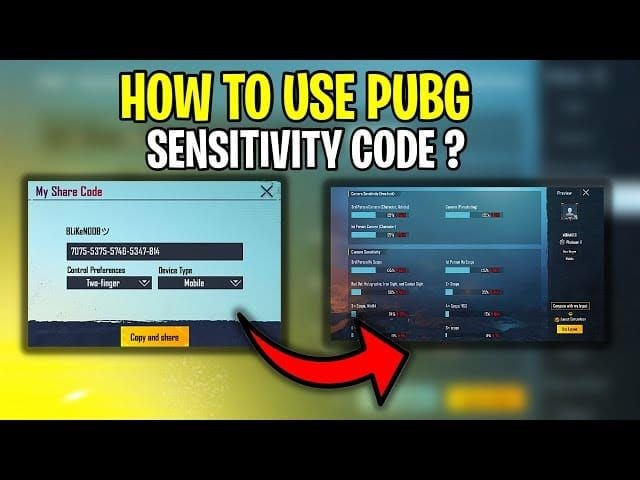
Screenshot everything as backup too. I mean everything: Camera sensitivity (3rd person, all scopes), ADS sensitivity (all scope types), Gyroscope sensitivity, HUD layout configurations, and Graphics settings. Use clear naming conventions like 3.9_Camera_Settings – trust me, you’ll thank yourself later.
Performance Baseline Testing
Establish quantifiable metrics in Training Ground. Here’s what I test:
M416 spray pattern at 50m (30 rounds)
AKM vertical recoil control (20 rounds)
Headshot percentage with 4x scope at 100m
Target acquisition time from hip to ADS
Flick shot accuracy across distances
Document these baseline metrics to compare post-migration performance. Numbers don’t lie.
Step-by-Step Sensitivity Migration Process
Camera Sensitivity Conversion
Open PUBG Mobile 4.0, navigate to Settings > Sensitivity, access ‘Use Layout’ > ‘Cloud’, enter your saved sensitivity code, and confirm application.
For manual restoration using screenshot documentation, here’s the hierarchy I recommend:
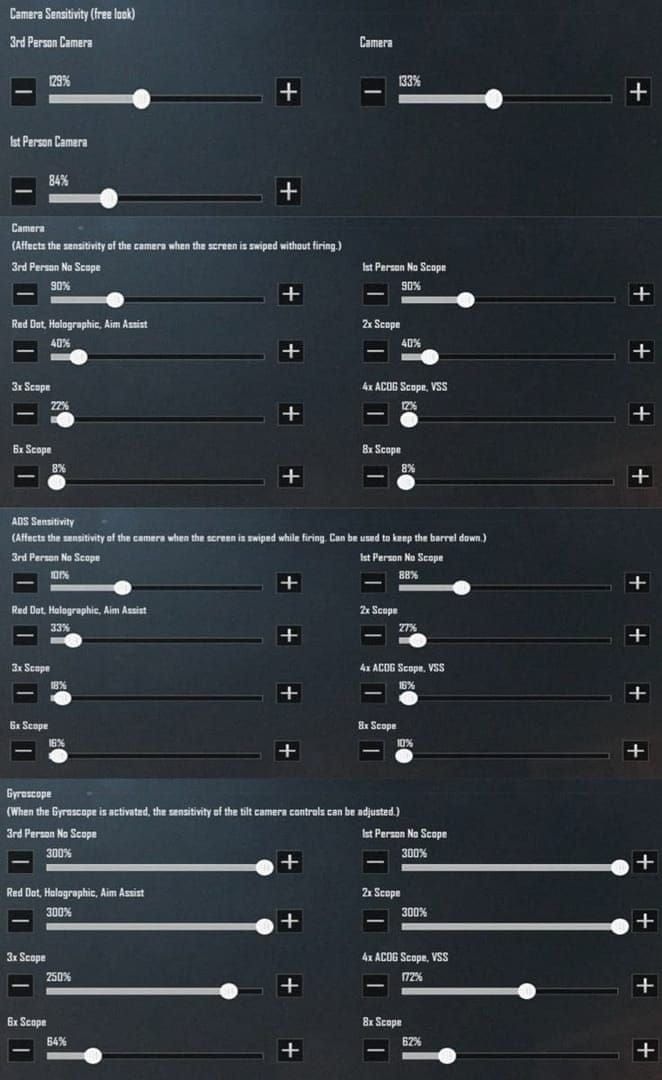
Red Dot/Holographic: 120-130%
2x Scope: 100-120%
4x Scope: 80-100%
6x/8x Scope: 60-80%
These ranges work for most playstyles, but adjust based on your preference.
ADS Sensitivity Migration
ADS sensitivity directly impacts recoil control effectiveness – this is where precision matters most. My baseline recommendations:
Red Dot/Holo: 35-45% 2x Scope: 30-40% 3x Scope: 25-35% 4x Scope: 20-30% 6x Scope: 15-25% 8x Scope: 10-20%
Higher sensitivity enables close-quarters responsiveness while progressive reduction allows fine adjustments for high-zoom scopes. It’s all about balance.
Gyroscope Settings Transfer
Professional settings vary dramatically by playstyle. For aggressive play:
3rd Person/Red Dot/2x: 300-400%
3x Scope: 236% (Jonathan Gaming’s setting)
For precision playstyle:
6x Scope: 100-150%
8x Scope: 50-100%
High gyroscope sensitivity requires significant practice but enables superior recoil control through minimal physical movements. Worth the investment if you’re serious about improvement.
Device-Specific Migration Considerations
iOS vs Android Differences
iOS provides more consistent touch response due to tighter hardware-software integration – it’s just how Apple designs their ecosystem. Android performance varies across manufacturers, with high refresh rates (90Hz, 120Hz) handling higher sensitivity better.
When migrating between platforms? Expect 10-15% value adjustments. iOS users switching to Android typically need slightly higher values to compensate for different touch processing.
Screen Size Impact
Device screen size significantly affects optimal sensitivity values:
Tablets (10+ inches): Reduce sensitivity by 20-30% Large phones (6.5+ inches): Standard ranges apply Compact phones (under 6 inches): Increase by 15-25%
Physical movement distance remains consistent, but screen real estate changes require proportional adjustments. Physics doesn’t lie.
Hardware Performance Factors
Optimize graphics for performance first, aesthetics second:
Smooth quality
Highest stable frame rate (Extreme/90fps preferred)
Colorful or Classic style
Disabled shadows
Disabled auto-adjust graphics
Monitor frame rate stability during testing. Adjust sensitivity if performance fluctuates – inconsistent performance ruins muscle memory development.
Testing and Validation Methods
Training Ground Testing Protocol
Conduct wall spray patterns at 25m, 50m, 75m with all primary weapons (M416, AKM, Scar-L, QBZ). Test stationary and moving target engagement across scope types, flick shot accuracy, and quick-scope precision.
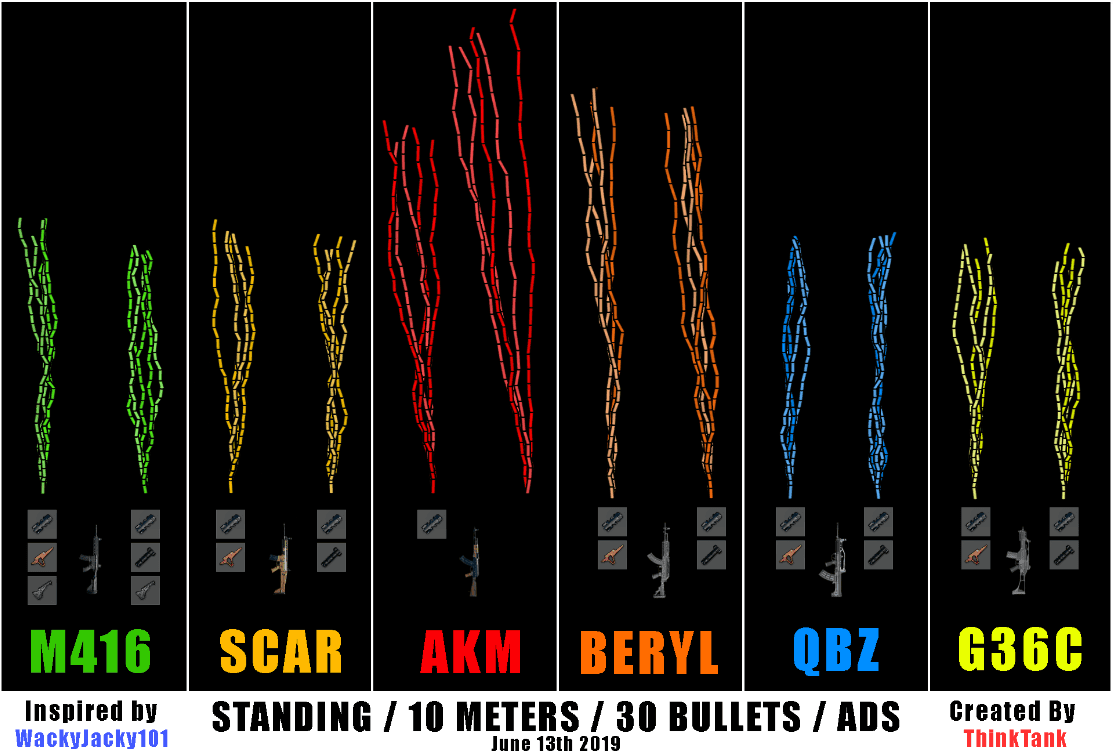
Spend minimum 30 minutes before jumping into competitive matches. Focus on your most-used weapons first – no point perfecting the Groza if you never find it.
Performance Metrics Tracking
Monitor these over 7-10 days post-migration:
K/D ratio consistency
Headshot percentage maintenance
Average damage per match
Survival time
Make maximum 5% adjustments per session with 24-48 hours between modifications. If performance degrades, return to previous values immediately.
Common Migration Mistakes and Solutions
Over-adjustment Errors
Don’t fall into the trap of excessive modifications based on initial discomfort. Muscle memory requires adaptation time – period.
Follow these rules:
Maximum 5% adjustments per session
Allow 24-48 hours between changes
Test across multiple matches
Resist copying popular codes without personal testing
Scope Sensitivity Mismatches
Establish base sensitivity for your most-used scope (typically 4x), then scale others proportionally based on zoom level. Maintain consistent ratios for smooth transitions.
Jonathan Gaming uses 300% gyroscope for close-range optics while reducing to 236% for 3x scopes – notice the strategic scaling, not random numbers.
Gyroscope Calibration Issues
Start with gyroscope disabled to establish your touch baseline. Gradually introduce at low sensitivity (50-100%), focus on vertical recoil control initially, then increase incrementally as comfort develops.
Many players benefit from hybrid approaches combining touch movement with gyroscope fine-tuning. Don’t feel pressured to go full gyro immediately.
Pro Player Migration Strategies
Competitive Player Approaches
Jonathan Gaming’s aggressive setup uses 300% gyroscope sensitivity for Red Dot and 2x scopes, enabling rapid target switching while maintaining precise recoil control. But here’s the key – he’s built up to these settings over years of practice.
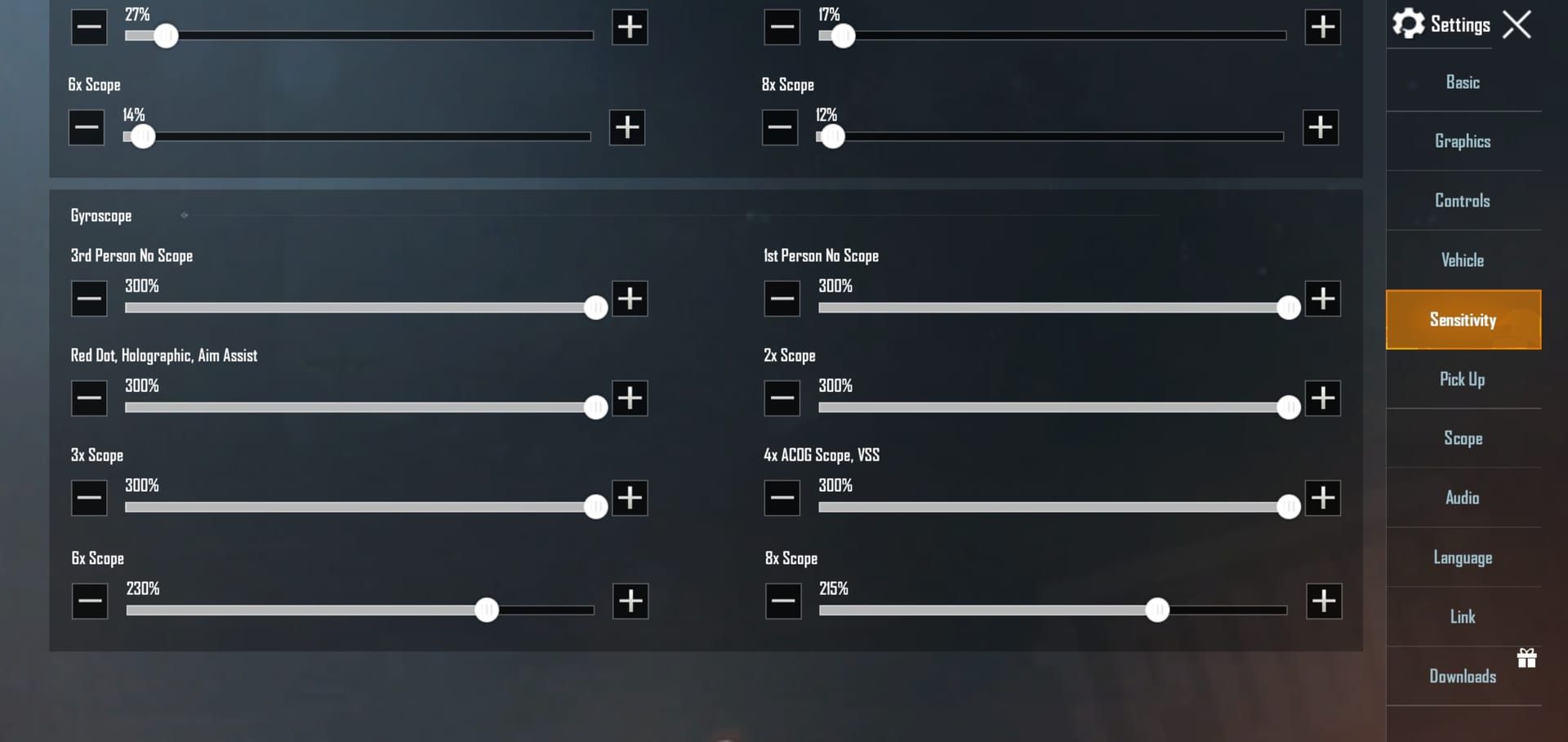
Professional principles:
Preserve core sensitivity ratios
Prioritize most-used weapons for testing
Maintain consistent practice schedules
Document all changes for rollback needs
Advanced Optimization Techniques
Enable gyroscope with ‘Scope On’ activation for precision control. Practice micro-adjustments for long-range engagements. Implement 3 or 4-finger claw grip configurations with fire buttons repositioned to screen top.
Create multiple layout profiles for different game modes – your TDM settings don’t need to match your Classic gameplay.
Daily training protocol that actually works:
10-minute warm-up (target acquisition)
15-minute recoil control (spray patterns)
10-minute tracking drills
15-minute scenario practice (TDM/Arena)
5-minute cool-down (precision shooting)
Start with stable 5.56mm weapons, progress to higher-recoil 7.62mm weapons. Build confidence before complexity.
Troubleshooting Post-Migration Issues
Common Problems and Fixes
Excessive aim bounce during sprays: Increase ADS sensitivity by 5% increments.
Jittery over-correction: Decrease ADS sensitivity by 5%.
Cannot track fast targets: Increase camera sensitivity for relevant scopes by 10-15%.
Sluggish target switching: Increase 3rd person camera sensitivity to 120-130%.
Simple fixes for common issues – don’t overthink it.
When to Reset Completely
Sometimes you need to start fresh. Reset when:
Performance degradation exceeds 20% after one week
Multiple categories require extensive modification
Device/grip changes occur
Consistent discomfort persists
Document what went wrong, research baseline recommendations, implement conservative starting values, follow systematic calibration, then gradually increase complexity.
For optimal migration support and premium features, Buy PUBG UC through BitTopup provides reliable, secure transactions with competitive pricing and rapid delivery.
Frequently Asked Questions
How long does adaptation take to migrated sensitivity settings?
Direct code imports achieve comfort within 2-3 days. Significant modifications require 7-14 days with consistent training. Professional players dedicate 2-3 hours daily for accelerated adaptation – but most of us don’t have that luxury.
Should I copy pro player sensitivity settings?
Use pro settings as reference points, not direct copies. Jonathan Gaming’s 300% gyroscope requires extensive practice and specific techniques. Start with moderate values and adjust gradually based on your actual performance.
What if my sensitivity code doesn’t work?
Fall back to screenshot documentation for manual restoration. Input values manually across all categories: Camera, ADS, then Gyroscope. Conduct Training Ground validation after manual input to ensure everything transferred correctly.
How do I know if migration worked correctly?
Monitor K/D ratio, headshot percentage, and average damage. Conduct M416 spray control tests, 4x scope target acquisition, and moving target tracking. Performance within 10% of baseline indicates successful migration.
Can device performance changes affect sensitivity feel?
Absolutely. Frame rate variations impact sensitivity effectiveness significantly. Monitor stability and adjust graphics settings accordingly. Frame rate drops may require slight sensitivity reduction; improvements may enable higher values.
What’s the difference between Camera and ADS sensitivity migration?
Camera controls view movement when you’re not firing (100-130% optimal range). ADS governs shooting aim control (20-45% by scope type). Maintain ratio relationships rather than absolute values during migration – it’s about proportional feel, not exact numbers.


















